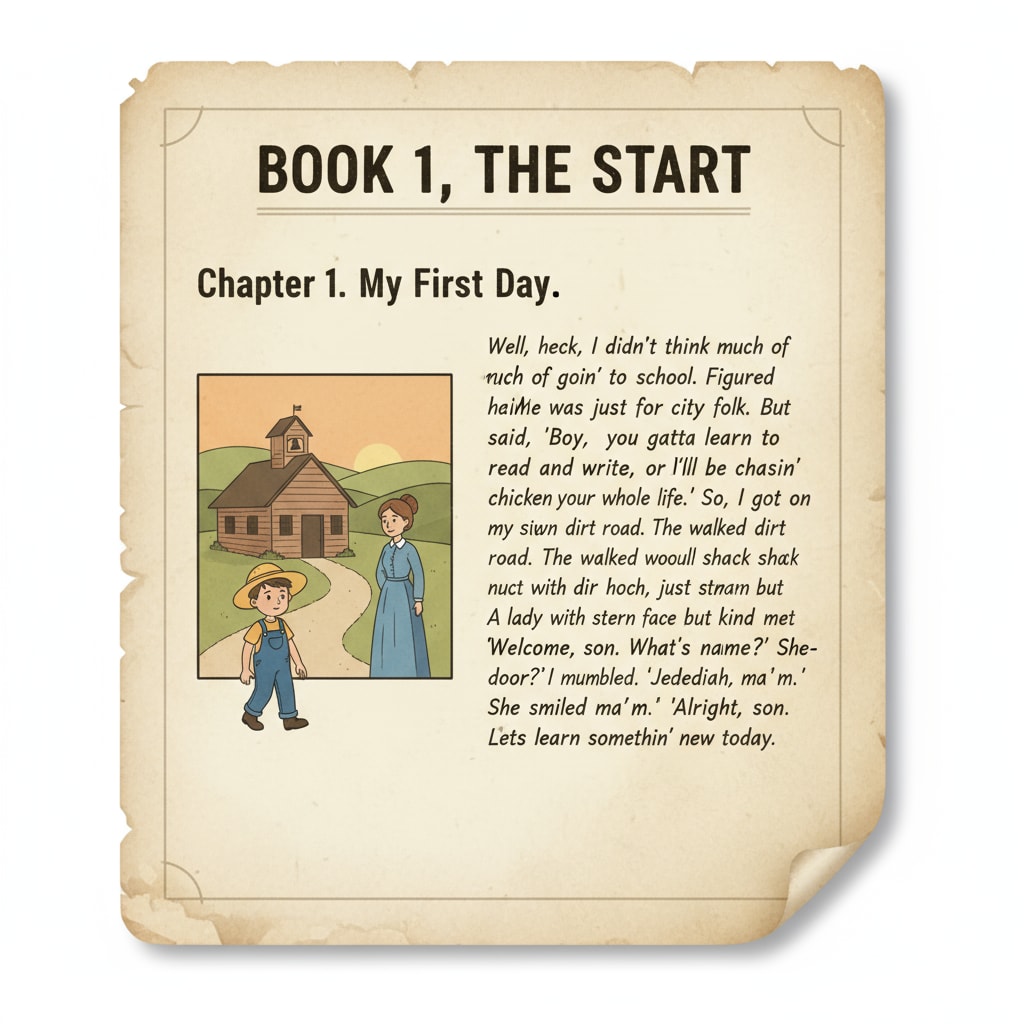In the realm of novel writing, the intersection of writing style and a character’s educational background is a crucial aspect to master. Crafting a character with a limited educational background requires a delicate balance to ensure authenticity while maintaining readability for the audience.

This balance can greatly enhance the depth and believability of the story.
The Language of Characters with Limited Education
The language used by characters with limited education often reflects their life experiences and lack of formal schooling. For example, they may use more colloquialisms (informal, everyday expressions) and simple vocabulary. Instead of using complex words, they might rely on common, straightforward terms. According to Language in Literature on Wikipedia, this simplicity can add authenticity to the character. They may also have less precise grammar, with more dropped articles or incorrect verb tenses. However, it’s important not to overdo these aspects, as excessive use can make the text difficult to read.

Narrative Techniques for Such Characters
When it comes to narrative, characters with limited education may have a more straightforward way of telling a story. Their narratives might lack the sophistication of a highly educated person. They could focus more on the practical aspects of events rather than philosophical or abstract musings. As a result, the story may unfold in a more linear fashion. Narrative on Britannica explains that this simplicity can draw the reader in, making the character’s experiences more relatable. For instance, they might describe a day at work in a simple, step – by – step manner, without getting into complex descriptions of emotions or thoughts.
Readability guidance: Keep paragraphs short and to the point. Use lists to summarize key points, like the different language and narrative aspects. Control the use of long sentences and passive voice. Add transition words such as ‘however’ and ‘for example’ to make the flow smooth.
In conclusion, novel writing involves carefully considering the writing style in relation to a character’s educational background. By paying attention to language, narrative, and emotional expression, authors can create characters with limited education that are both authentic and engaging for readers. This approach enriches the overall novel – writing experience and brings the story to life.


